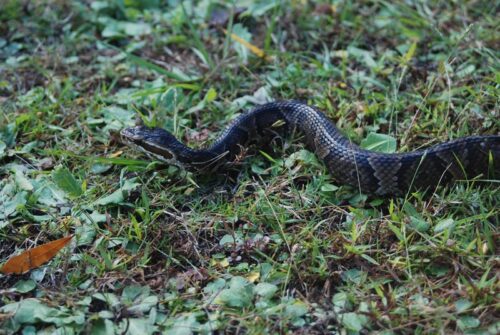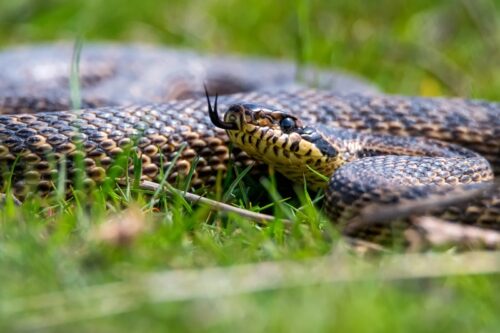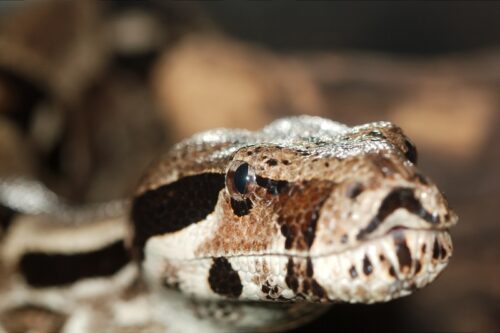Emergency Snake Removal
We understand Snake removal in Norfolk is usually an emergency. Trapping these reptiles can be dangerous and should only be done by a trained expert. We are professionals with years of experience. Let us help with snakes in the house or garage.
We know how to handle these potentially venomous animals. Don’t let yourself or your family get injured, we will safely remove them from your home. Also, we will find the areas that they have been entering the home and seal those up.
A common reaction to a snake regardless of whether it be in your home or on your property is to kill it whether or not it poses a risk or not. However, many in the local area are harmless and even the dangerous ones would rather flee than fight. They are also very beneficial to the ecology and can help keep other pests away.
Snakes in Home and Yard
Working with these critters can dangerous and should only be done by an expert. Virginia’s most dangerous venomous include the Northern Copperhead, Timber Rattlesnake and the Cottonmouth. They can cause serious injury even death. The Timber Rattlesnake can be commonly found in homes, commercial, and industrial areas of Norfolk County, Virginia.
They enter the home in search of food, which often small rodents or other small animals that have gained entrance to your home. If you have a snake in your home, you might have other critters there too. They will enter the home in the same way that the other wildlife pests have. Many are excellent climbers and are not confined to foundation access. We will help you to find these entry points and seal them up, which will prevent pests from causing any further problems.
Snake Trapping and Exclusion
There are a number of DIY snake traps on the market, and very few of them are effective. The best way to ensure that you quickly, safely, and efficiently remove this pest animal is to call in a professional. We understand the best way to handle them so that they do not become a potential victim to a bite. We are able to distinguish between venomous and non-venomous species and will adjust our trapping methods.
Once we have safely removed the problem snake we will work with the homeowner to help exclude them from returning. This is done in a number of ways. We will look to control the food source, which could be from pet food left outside to insect problems in the home. If there is no food, they will move on. One other way is by den site identification; we will inspect the home and grounds searching for any possible dens.
Sealing up the home from any possible wildlife entry points will also control them from entering into the home. These remarkable reptiles are able to enter the home through very small openings. We will seal those points. One last method is to suggest habitat modification. Loose stone or rock walls are a perfect hiding and nesting area. Any debris or long grassy weeds are great cover. We will suggest ideas you can make to your home to deter snakes from entering.
General Snake Removal FAQs
Do mothballs get rid of snakes?
Mothballs are commonly thought to repel snakes. They actually have little to no effect on snakes. The best way to remove snakes from your property is to remove any food sources for the snakes. A professional can suggest proper treatment to repel snakes.
How do you prevent snakes getting into your home?
Snakes inside a home tend to be smaller snakes. These snakes can enter the home through very small gaps such as under the door. They will also enter the home through openings made by other wildlife such as snakes.
Keep your yard clean and free of clutter. Snakes seek out hiding places to ambush their prey. Get rid of any food sources such as mice and insects. A wildlife control operator can help with this. Seal up any holes in foundations, garage, or screen doors.
Are all snakes dangerous?
Most snakes are non-venomous. Although their bite may cause pain it is not dangerous to humans or pets. There are venomous snakes whose bite can be a danger to humans. It is often difficult to differentiate between the species. Don’t handle a snake if you aren’t sure.



